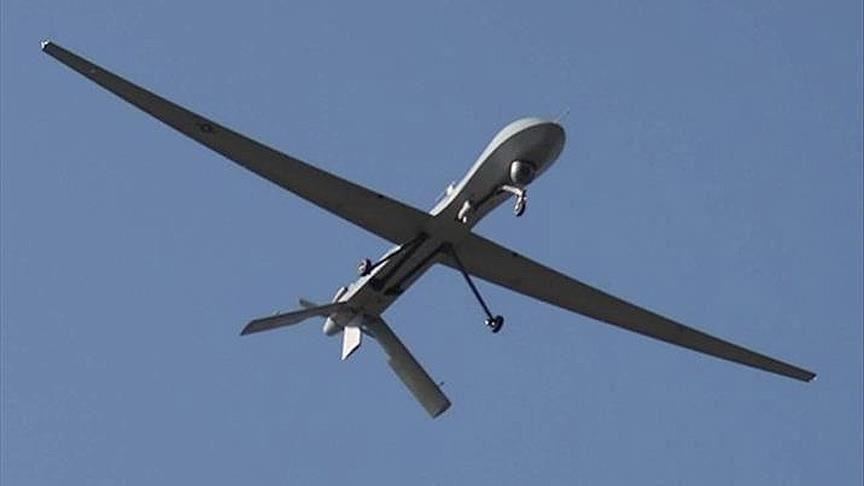Palestinian drones 'tactical threat' to Israel: Experts
Israel's Institute for National Security Studies (INSS) identified UAVs as "enemy guerrillas"

JERUSALEM
Unmanned drones used by Palestinian resistance factions in the Gaza Strip are becoming a "tactical threat" to Israel in any future conflict, analysts believe.
On Sunday, the Israeli army said it shot down a drone flying over the buffer zone in the northern Gaza Strip.
The army said the drone's remnants were collected and transferred for further examination in order to determine its origins and type.
"Resistance movements in Gaza have managed to develop some 10 types of UAVs [unmanned aerial vehicles] in the past five years," Wasef Erekat, a Palestinian military expert, told Anadolu Agency.
He said two types of drones are now being sent into Israeli territory.
"The first one is the commercial drones which can be used to collect information and photos or for surveillance during war," he said.
"It can also be used to carry out attacks by arming them with an explosive charge of between 10-15 kg," he said.
According to Erekat, the second type is the fixed-wing UAVs.
"This type of drones can fly at high altitudes and for long periods and they can be armed with guided missiles with a load of more than 200 kg," he said.
The drone Israel downed on Sunday was reportedly of the commercial type.
Erekat believes that drones can pose a real threat if they are used by the Palestinians instead of arson balloons to reach further distances.
"The Israeli army usually bombs military posts for Palestinian resistance factions in response to these drones," he said.
Israel is a world leader in drone technologies and has used the UAVs extensively during military conflicts.
Tactical threat
Following the 2014 Israeli war on Gaza, Israel's Institute for National Security Studies (INSS) identified the UAVs as "enemy guerrillas".
In an article published in July 2018, Alex Fishman, a military commentator in Israeli daily Yedioth Ahronoth, warned that the UAVs pose a major threat to Israel in any future conflict.
"The explosive drones are not the weapon to deliver a decisive blow,” Fishman wrote, "but if they're not classified as one of the main threats, and if the IDF [army] doesn't prepare for them, it would be hard to estimate the level of damage a massive use of them could cause in the future."
Jalal Rummana, a Palestinian expert on Israeli affairs, said Israel's security establishment classifies the UAVs as a "tactical threat" in any future conflict.
"In the past four years, Israel has targeted Palestinian experts in unmanned aerial vehicles in an attempt to disrupt the Palestinian resistance project in developing these tools," Rummana told Anadolu Agency.
In 2016, Tunisian drone expert Mohammed Zawari was shot dead outside his house in Tunisia.
Zawari was reportedly working on developing UAVs for Palestinian resistance group Hamas, which blamed Israel for his assassination.
In 2018, Palestinian engineer Fadi Al-Batsh, who was reportedly working on developing UAVs, particularly encrypted communications between the operator and drone, was also assassinated in Malaysia.
"The problem with Israel is that they are aware of the existence of this program, but they do not know the extent of its technological development,” Rummana said.
"Moreover, the quality and quantity of the UAVs are still unclear to Israel," he said.








